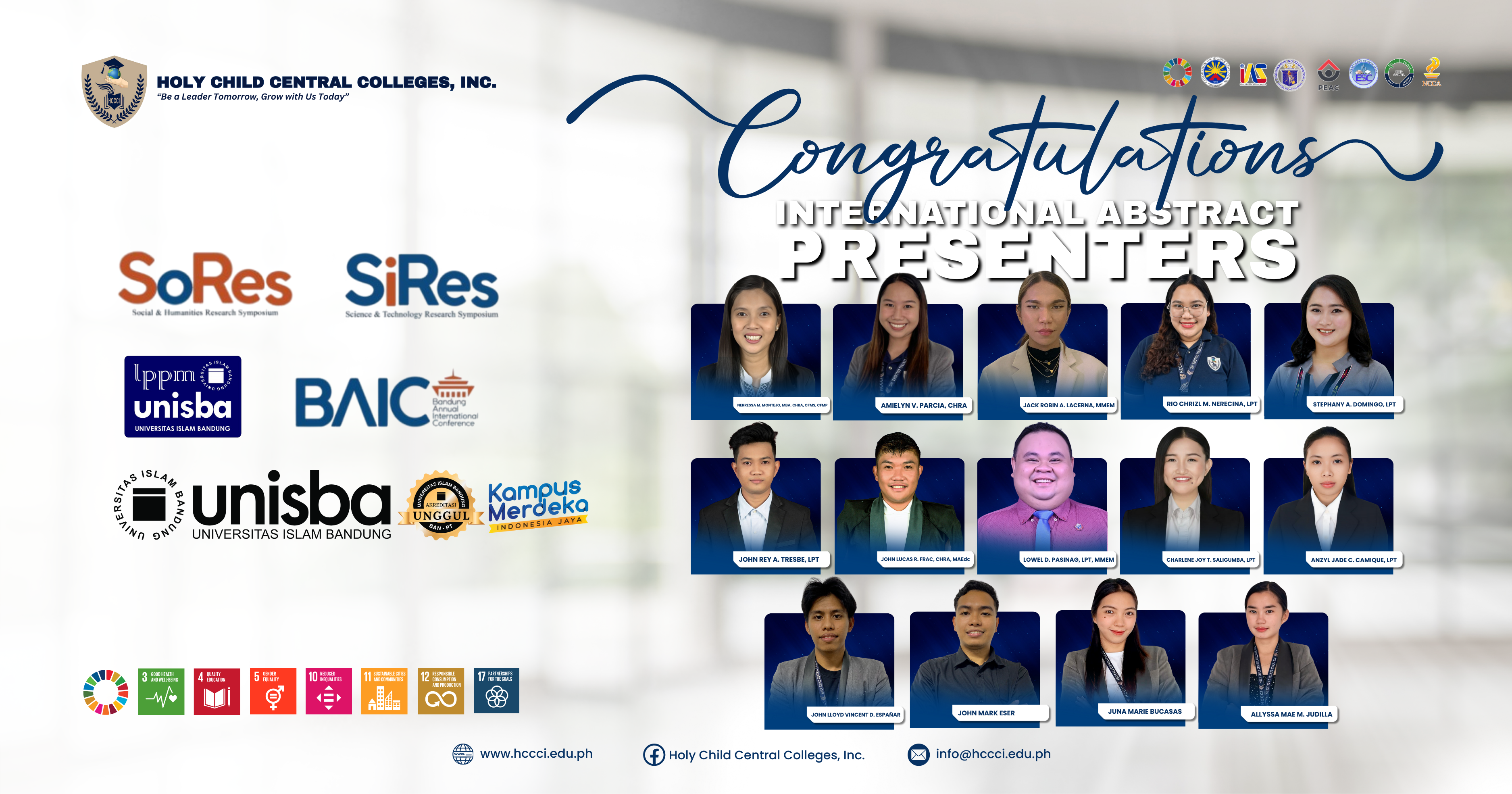𝐇𝐂𝐂𝐂𝐈 𝐂𝐨-𝐇𝐨𝐬𝐭𝐬 𝐚𝐧𝐝 𝐒𝐡𝐨𝐰𝐜𝐚𝐬𝐞𝐬 𝐒𝐮𝐬𝐭𝐚𝐢𝐧𝐚𝐛𝐥𝐞 𝐑𝐞𝐬𝐞𝐚𝐫𝐜𝐡 𝐚𝐭 𝐭𝐡𝐞 𝐁𝐚𝐧𝐝𝐮𝐧𝐠 𝐀𝐧𝐧𝐮𝐚𝐥 𝐈𝐧𝐭𝐞𝐫𝐧𝐚𝐭𝐢𝐨𝐧𝐚𝐥 𝐂𝐨𝐧𝐟𝐞𝐫𝐞𝐧𝐜𝐞 (𝐁𝐀𝐈𝐂) 𝟐𝟎𝟐𝟓
Holy Child Central Colleges, Inc. (HCCCI) proudly stood at the forefront of global academic collaboration as it co-hosted the Bandung Annual International Conference (BAIC) 2025 in Bandung, Indonesia last September 10–12, 2025, through a hybrid setup. For the first time, HCCCI shared the international stage not only as a participant but as a co-host, further expanding the institution’s vision of bringing its faculty and students into meaningful global dialogue. Through the efforts of its International Relations Office, HCCCI mobilized young researchers and educators to take part in the Social and Humanities Research Symposium, proving that research becomes more impactful when rooted in community stories and shared in a global arena.
With the theme of advancing global perspectives in education, business, and social sciences, BAIC 2025 provided a platform where institutions and scholars could share knowledge, listen to diverse voices, and build bridges of understanding. For HCCCI, being part of such a significant event affirmed the values it has long embraced—dialogue, collaboration, and innovation—as well as its vision of scholarship that uplifts communities.
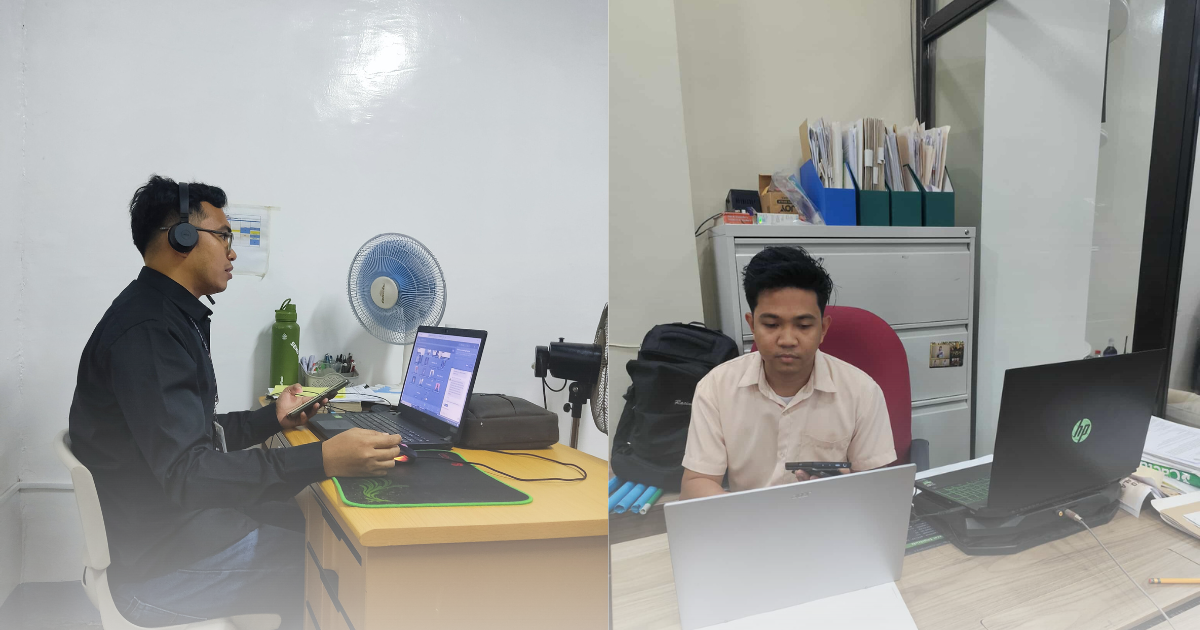
True to its mission of fostering academic excellence with a heart for community and sustainability, HCCCI researchers presented studies that not only advanced knowledge but also connected directly to the United Nations Sustainable Development Goals (SDGs). From promoting quality education (SDG 4) and gender equality (SDG 5) to strengthening economic growth (SDG 8) and building sustainable communities (SDG 11), each study showed how research, when guided by purpose, can create ripples of change both locally and globally.
Among the inspiring contributions were Ms. Amielyn V. Parcia and Ms. Nerressa Montejo, MBA, CHRA, CFMS, CFMP, who presented “Halal Awareness and Consumer Willingness: A Study on Generation Z Purchasing Behavior,” offering fresh insights into consumer inclusivity and responsible markets (SDG 12: Responsible Consumption and Production). Ms. Charlene Joy T. Saligumba, LPT, and Ms. Rio Chrizl M. Nerecina, LPT introduced their work “AI Detection of Originality Across Diverse Writing Prompts: Proof of Principle on Stylistic Sensitivity,” which examined how artificial intelligence can safeguard academic integrity and digital ethics (SDG 9: Industry, Innovation, and Infrastructure).
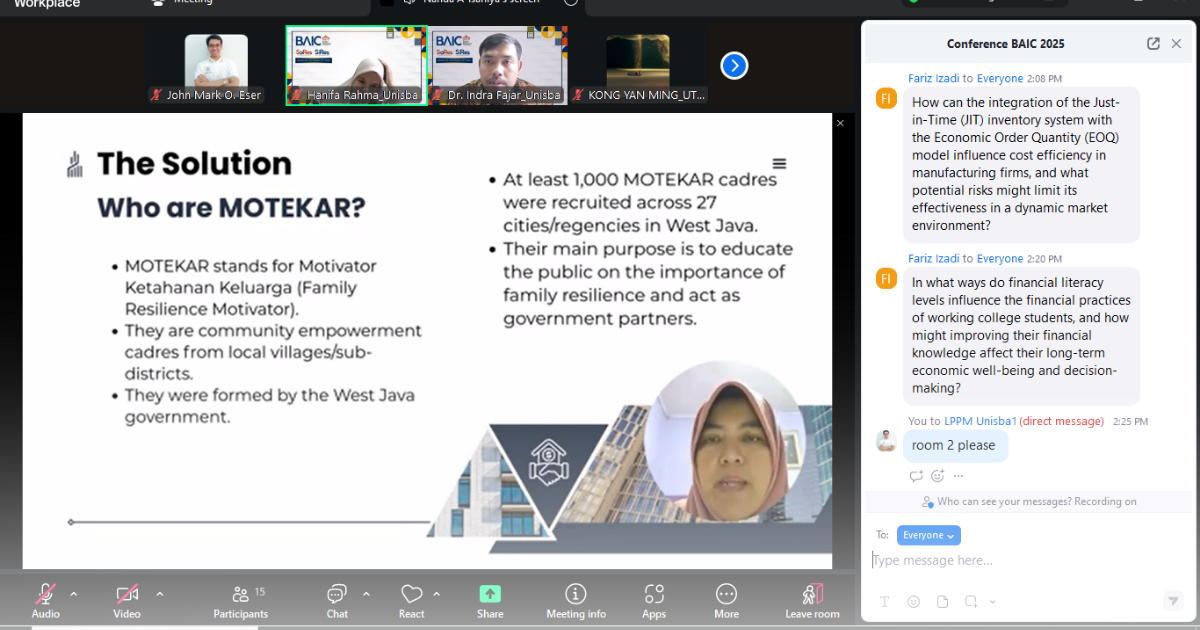
Financial empowerment was at the core of the study “Understanding Financial Practices and Literacy Levels of Working College Students” by Ms. Allyssa Mae Judilla, Ms. Juna Marie Bucasas, Mr. John Lloyd Vincent Españar, Mr. John Mark Eser, and Ms. Nerressa Montejo, MBA, CHRA, CFMS, CFMP, highlighting how education can break cycles of poverty and promote sustainable livelihoods (SDG 1: No Poverty; SDG 8: Decent Work and Economic Growth). Meanwhile, Ms. Anzyl Jade C. Camique presented her phenomenological research, “From Aspiration to Transformation: A Study on Special Needs Education Teachers in Handling Learners with Reading Difficulties,” which shed light on the resilience and dedication of teachers working toward inclusive education (SDG 4: Quality Education).
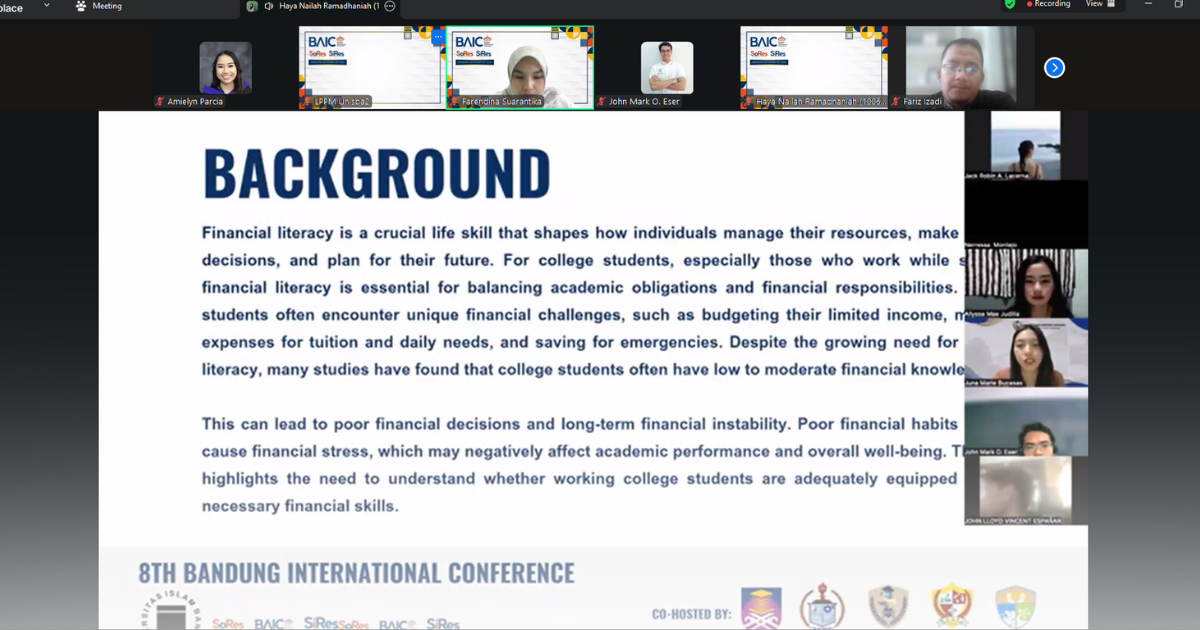
Local culture also found its way to the global stage through “From Local Flavors to Global Brands: Investigating Consumer Chocolate Preferences in South Cotabato” by Ms. Allyssa Mae Judilla, a study that celebrates community-based products while envisioning their international potential (SDG 8: Decent Work and Economic Growth). Creativity and pedagogy came alive in Mr. Jack Robin A. Lacerna’s reflective research, “Pre-service Teachers’ Critic on the Movie Lilo and Stitch: Integrating Film in Teaching,” which reminded participants that innovative teaching strategies can emerge from everyday media (SDG 4: Quality Education).
Equally meaningful was the presentation of Ms. Charlene Joy T. Saligumba, LPT, and Mr. Lowel D. Pasinag, LPT, MMEM, who shared their work “Reading Between the Lines: A Phenomenological Study on the Lived Experiences of Grade 7 Students with Functional Illiteracy in the Context of Academic Literacy Transition,” tackling literacy gaps and highlighting the challenges faced by learners in transition (SDG 10: Reduced Inequalities). Closing the series of presentations, Mr. John Lucas R. Frac, CHRA, MAEd, and Mr. John Rey A. Tresbe, LPT delivered their study “From Scales to Stories: Family Functioning and Coping Mechanisms of Senior High School Learners of HCCCI,” reflecting how family relationships shape student well-being and resilience (SDG 3: Good Health and Well-being).
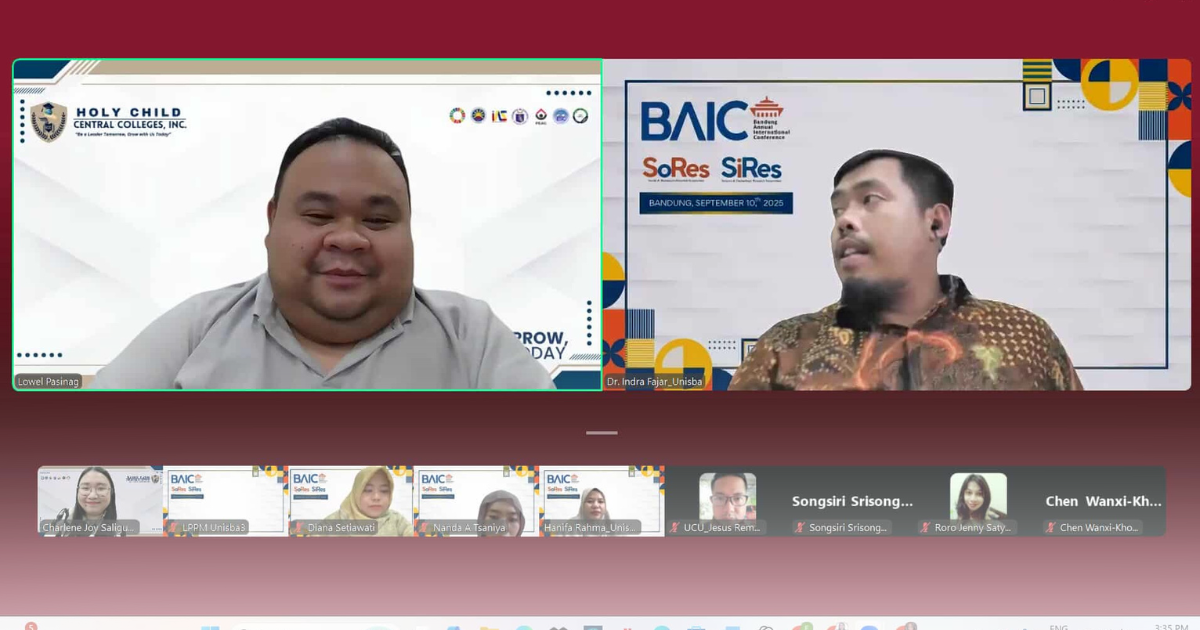
These diverse studies tell stories that extend beyond research papers. They carry the aspirations of students, the dedication of teachers, and the lived realities of communities in Mindanao. They demonstrate how a small institution like HCCCI can bring local insights to global conversations, proving that sustainable research does not begin in grand laboratories alone but in classrooms, families, and communities that nurture resilience, hope, and innovation.
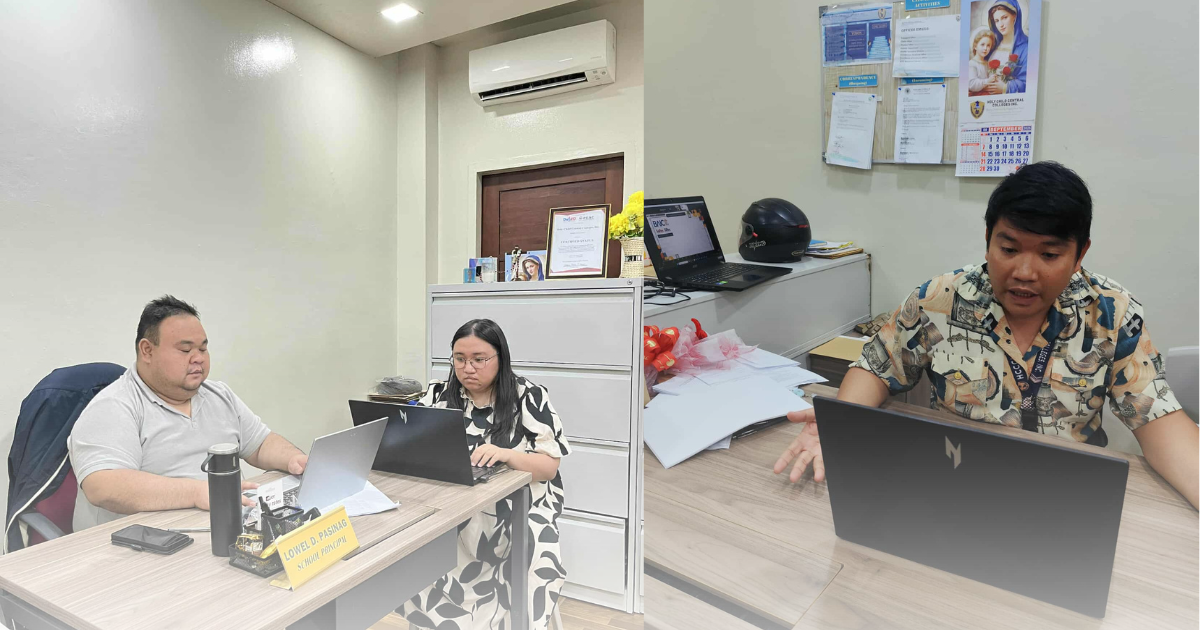
As co-host of BAIC 2025, HCCCI affirms that academic gatherings like this are not just spaces for presenting findings but also living laboratories of collaboration—where knowledge is exchanged, cultures are respected, and shared goals are embraced. By aligning its work with the SDGs, HCCCI continues to show that sustainability is not an abstract idea but a lived practice, woven into the very fabric of teaching, research, and community service.
Through BAIC 2025, HCCCI strengthened its role as a catalyst of change, championing sustainable, engaging, and collaborative scholarship. With humility and determination, the institution remains committed to transforming lives, shaping futures, and proving that even from the heart of Mindanao, powerful contributions can echo across the world.
